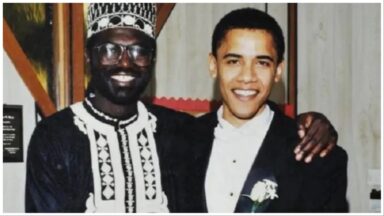Once a radical notion, the push to defund the police is gaining ground. Across the country, organizers, celebrities,and former city officials are calling on lawmakers to reimagine the role of police in public safety.
Proponents of taking money away from cops say cities cannot simply reform their way out of the current policing crisis. And in the wake of the pandemic, some have highlighted a deadly disparity: many cities spend millions more on law enforcement than they do on most other services, including public health.
New Report: 90% of America’s Sheriffs Are White Men
But what do people mean by defunding the police? It doesn’t just mean slashing budgets. One of the main ideas is that police departments are often the only agency to respond to problems — even if the problems are not criminal in nature. Police handle mental health crises. They enforce traffic laws. They patrol public school hallways and contract with colleges and universities. In many small towns, police answer 911 calls about barking dogs and loud parties. Advocates of defunding the police argue that many of these functions would be better left to other professionals, such as social workers.
Decades of over-policing in black and brown neighborhoods has led to black and brown people being disproportionately victims of police violence and overrepresented in prisons. A better approach, proponents of defunding the police argue, redirects law-enforcement funding to social services programs such as public housing, early childhood education and healthcare. By equitably distributing resources, they say, the need for police could be dramatically reduced.
Molly Glasgow, a volunteer with MPD150, a grassroots initiative to abolish the Minneapolis Police Department, said decades of previous reform efforts have not broken a cycle of violence followed by unrest and promises of improvement that have failed.
“What we are asking is that we step out of that cycle,” Glasgow said. “When we say dismantle: Yes, we mean divest and defund, but also invest in community programs and initiatives that are actually supporting people’s needs.”
Source: Support For Defunding The Police Department Is Growing. Here’s Why It’s Not A Silver Bullet.




Recent Comments